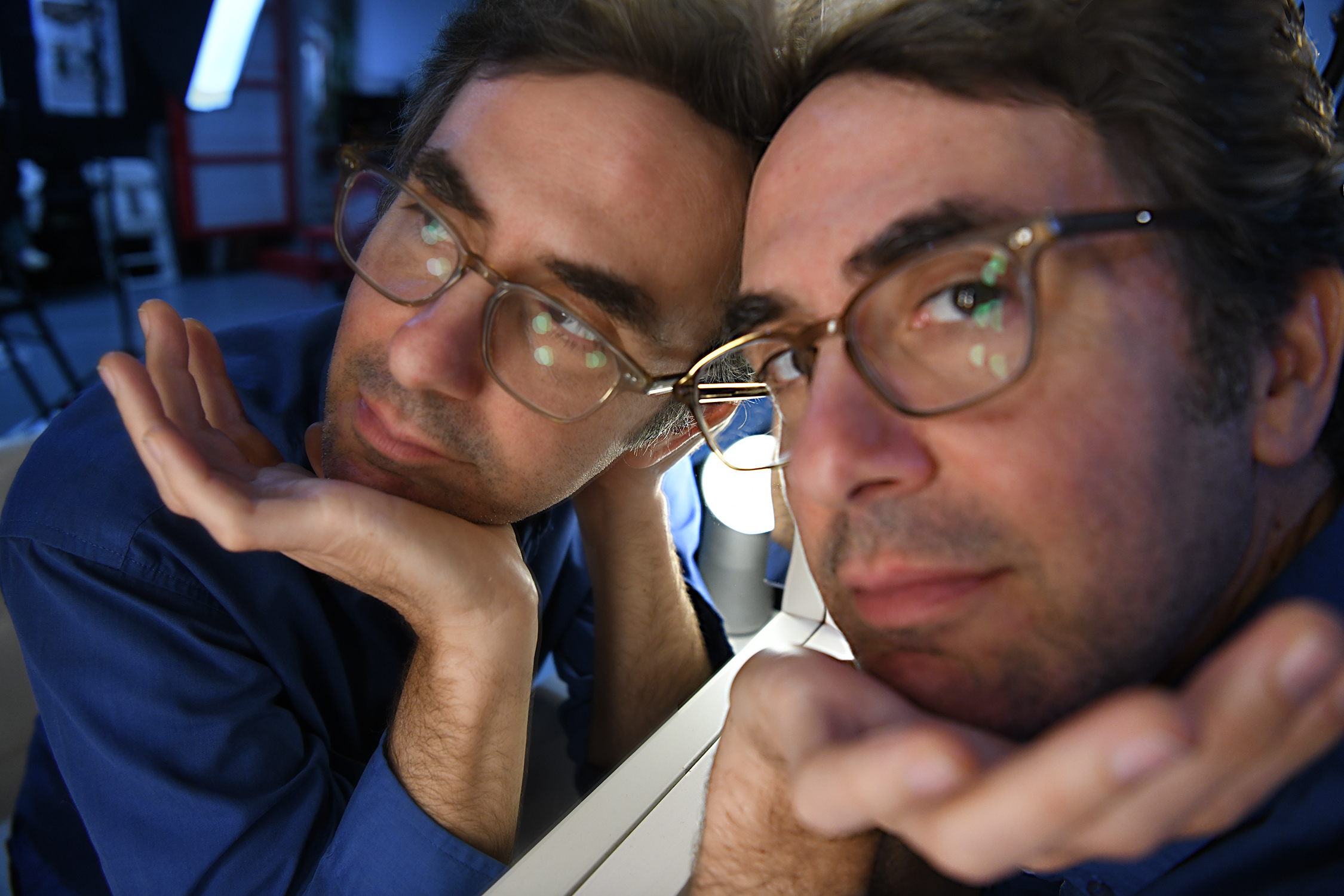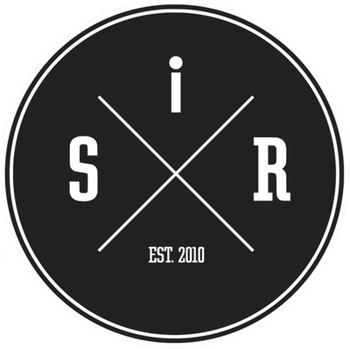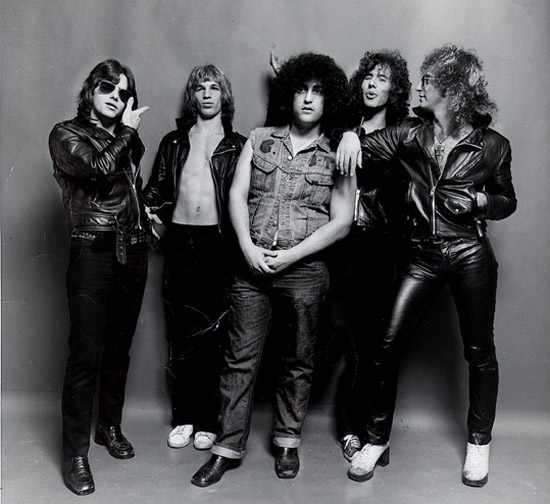I have a theory: Chris Cohen is not human—he’s an angel. Actually, I have a few more theories, including thoughts on jazz and the books he should write. We touch on all of that in the conversation below. Chris, thank you so, so much for your time. One quote I won’t forget: “If I didn’t have the music, I don’t know that I would say anything.”
**
Thibault: Hi Chris, how are you?
Chris: I’m good, thank you. Sorry to keep you waiting.
Thibault: No worries. Where are you these days?
Chris: I’m in Richmond, California, which is near Berkeley, San Francisco.
Thibault: Excellent! Alright, should we get started?
Chris: Let’s roll it.
Thibault: I divided the questions into two different sections. In the first one, I want to focus on your newest album, Paint a Room. Then, we will take a step back and talk about you. It’s actually the third time that I’ve interviewed you.
Chris: I looked it up this morning. That’s cool. Thanks for sticking with me.
Thibault: You know, I like literally every song from your first three albums, so… I knew I was going to like this one. There’s no reason why I wouldn’t. Which means that when the album came out, I wanted to be in a very specific place to listen to it… to have the full experience. It took me quite some time to get to it for that reason, which is not something I do with artists I don’t trust that much: I get to their new stuff immediately.
Chris: Thank you. Thanks for making a special time to listen. That’s awesome.
Thibault: Of course, well, thanks for the music. Okay, here’s my first question. I’ll let you answer, then I’ll give you my take on it. What differentiates this album from the previous three?
Chris: Let’s see. Well, superficially, I played a lot less guitar on this record. I tried to leave a lot of empty space for other people on the keyboard, the bass, the drums. There are a few more guests. I didn’t try to use the guitar as a foundation in a way. But of course, to me, it feels completely different because it was a different time in my life. I now live in a different city. A million things have changed since making it.
Thibault: So… when you play it on stage, does it bring you back to the past?
Chris: No… I don’t necessarily go back to those other times. When you play it on stage, it’s not like you’re reanimating some dead thing. You’re really building a whole new thing from scratch, you know, from the ground up. So… I don’t tend to go back in my mind to the time of recording the songs or making them. In fact, often, I won’t hear the recording of a song that I’ve been playing live for a long time, and then years later I’ll hear the recording and be like, “Oh, it goes like that?”
Thibault: For me, this album explores the concept of beauty. And the reason why I think it’s the central theme of the album is that you play many different instruments, which confirms indeed that the guitar is less present, so it gives room to more instruments. You use different textures on the voice, different moods. If I were to transpose this album to a movie, it would be a film by Paolo Sorrentino, who made La Grande Bellezza and Youth. Those are some of the most beautiful movies ever. You know, visually, it’s just amazing. And if it were a book, I would say it’s The Picture of Dorian Gray by Oscar Wilde, because of its obsession with the idea of objective beauty. So I guess my question is this: Is it the first time someone has elaborated on this idea of beauty to describe your music?
Chris: I haven’t heard that exactly before. I like it. I assume beauty is what every artist is pursuing… I wonder how that’s different from my older albums. I probably thought I was chasing beauty on the other ones too, but this one, I suppose I wanted to capture more of the beauty of life itself as opposed to the inner workings of my brain. I would be happy if this record has a little more uncontrolled spirit.

Credit: Kate Garner
Thibault: I find Overgrown Path more psychedelic in a sense. Even the jacket is. It takes me somewhere else. Paint a Room brings me to full consciousness, in a sense. So when did you write and record this new album?
Chris: I started writing it a while back, and we began recording it in the spring of 2022. It was mixed in October 2023, and so… I actually made this record much more quickly than the others. Like, I didn’t labor over it quite in the same way because I didn’t have to play everything myself. I took my time before beginning to write it, and then the recording happened quickly. So yeah… that’s one thing that’s really different about this record. This one was much more streamlined.
Thibault: Tell me more specifically about the song “Night or Day.”
Chris: I think almost all the new songs I wrote in our living room, looking out the window to the street. When I think of “Night or Day,” I just like looking out that window. There are a couple of songs on this record that are like that… coming from the perspective of being older. Yeah.
Thibault: The passage of time seems to be a common theme on all your albums. Now, talking about the passage of time and doing things differently, tell me about working with Hardly Art as opposed to Captured Tracks. How different was it?
Chris: Well, it’s a little different. Overgrown Path was finished before I met Captured Tracks. Then I would just hand in the records when they were done. Mike Sniper never even said a word about these albums. I was like, “Does he like it, does he like it?”
In contrast, I talk a lot with Matt Kolhede, Hardly Art’s manager. He was more involved, I guess. Hardly Art gave me a budget to record in a real recording studio. The other records were all recorded at home. Then COVID hit, so we didn’t end up doing that, so I bought some gear for my home studio, which was amazing. So that was a different experience for sure. Also, Matt is on the West Coast. It’s easier to meet up and talk about things in real life more.
Thibault: I remember interviewing Mike Sniper. He told me that the one thing he’s the proudest of with the label is putting out music.
Chris: I always remember that he said that. It was really sweet to read that. That meant a lot to me. But I think now I’m more comfortable with the situation. I can ask what they think about my music, what directions they would like me to try. You know, I’m curious.

Credit: Marceau Guehl
Thibault: Let me ask a final question about the album. Every month, I select one album… the best one of the month. I then ask a French photographer, Marceau Guehl, to take one or a couple of pictures that echo the album. So… I just want to show you the ones that he did for yours.
Chris: Oh, you picked my record?
Thibault: Yeah, of course. Obviously.
Chris: Thank you.
Thibault: So… there are three photographs. To me, they capture the different temperatures that I see on the album. That blue color is very cold. And on the other end, she’s wearing a summer dress. Anyway, I’m wondering if these pictures take you to a totally different universe than the one you had in mind when recording the album?
Chris: I think it’s a different universe, but of course, everybody has their totally legitimate response to music. The second one maybe comes closest. It sort of reminds me of Bigfoot, like the body language… she’s sort of slumped a little bit. Yeah… that’s cool.
Thibault: The texture of those photographs is very soft. It echoes the velvet aspect of your music. Alright, it’s time to take a step back on your music. What do you find most challenging in maintaining consistent creative flow? Do you have a method, or is music more organic, emergent?
Chris: I’m more on the methodical side. I do my best creative stuff when life is calm and I’m not totally upset or struggling to survive.
Thibault: Would you describe yourself as an emotional person? I’m asking because your music feels introspective and very personal.
Chris: I like to think that my emotions and my logical side are somehow in balance, but they’re not always balanced…
Thibault: Are you listening to jazz music? That’s also something I can hear in your music, something that helps me to be balanced, but maybe you’re not so into it.
Chris: Oh, sure. I love it. I’m a jazz fan for sure, although I don’t think I’m a jazz musician. To me, jazz is about the relationships between us. It’s about the relationship between musicians and individuals out in our world. It’s about how we organize ourselves in a community. It’s about history and carrying culture through time. Jazz music resists the dominant culture, that’s something that’s important to me with music; it should assert a better world or a better way of living. Jazz music does that in many ways. Jazz is always pursuing something that’s just beyond knowledge or known experience.
Thibault: And which artists come to mind?
Chris: My favorite jazz artists are probably Ornette Coleman… Wayne Shorter… Bud Powell, Herbie Nichols, Duke Ellington… I like really dense harmonies.
Thibault: You know, I think we both like jazz music for different reasons. For you, jazz is about connecting people and acting in a group. I’ve always listened to rock music like that. To me, rock is about getting in a crowd and saying to the world that you exist, pushing people on the side, making your own room. This kind of energy is not what I find in jazz, which is about avoiding society in a sense, being self-sufficient.
Chris: How does jazz music avoid society?
Thibault: Jazz brings me into my own mind. I get into the rhythm, I close my eyes, and… I go somewhere else. I escape the real world. Yeah. As opposed to rock music, which I want to listen to while walking in the street.
Chris: I see, right. You think of rock music in more of a social context, as more of a social activity. And jazz is more like solo listening.
Thibault: Exactly. But apparently, you don’t think of jazz this way, am I right?
Chris: Well… I suppose any music could be like either of those things, right? I mean, when I go to jazz shows, I’m often struck by the way people act and behave. So… I totally get what you’re saying, but I could see any kind of music being appreciated in any way. You know, it’s funny because I grew up listening to a lot of punk music. And I think that when people think of punk music, they think of the social context, being part of a friend group, right? But when I think of punk music, I think of when I used to listen to it alone in the suburbs. I didn’t have any punk friends. I wasn’t part of punk culture. I would go to the record store and buy the Black Flag tape and listen to it on my Walkman alone. It felt very visceral, and so is jazz to me.
I mean, yeah, I was not there in that world. But yeah, with jazz music, I guess I’m just talking more about maybe the experiences of musicians, of the musician playing jazz music, maybe. Or just when I think about jazz culture, I think about, I mean, it’s mostly individual musicians working in these different, working in these groups.
Thibault: So you say that you are not a jazz musician… is there any genre that you haven’t explored yet, but that you would like to play one day?
Chris: I feel like I’ve dabbled in a lot of genres, but to tell the truth… I’m not interested in genres per se. I’m more interested in the outlying examples within each one.
Thibault: There isn’t like a genre where you’d be like, “oh, I’ve never played that before, I’d love to try and see how it feels.”
Chris: I don’t think of a genre that I’m dying to play. Like people always say, “oh, your music is part of psychedelic music, or it’s indie rock, or whatever.” Those genres mean nothing to me. I really could not care less about any genre.
Thibault: I could see how it could be fun to enter one genre as a thought exercise, to see what you could do with the codes of that genre. I was listening to an interview with Quentin Tarantino earlier today, and he was saying, “well, maybe I should do a comedy and play with that genre because I’ve never done it before.” But fair enough…
Chris: It just sounds too reductive to me. My inspiration doesn’t work that way. So… if I were to try to make a country album… it wouldn’t turn out that way. I guarantee you it would come out like something else. I often say, “I wish I had more fast songs.” But when I start writing a fast song, at some point, I’m like, “oh, this would sound so much better if it was like halftime.”
Thibault: You know, some artists are very easy to categorize. You are not. So, I guess I now know why…
Chris: Indeed, but it’s also a problem too. It does make it less marketable. You’re not going to make real money if you have a product that you can’t quite name. And… that’s what I’m doing, I guess.
Thibault: Coming back to your writing, are you also writing books and novels on top of lyrics? Is that something we can expect from you one day?
Chris: Oh, wow. No. I don’t think of myself as a writer, as a words person. Words are secondary to sound and image to me, I suppose. I just write words so that I can sing something.
Thibault: You see them as passengers for the melody and putting your voice on top of it…
Chris: Yeah, I don’t feel confident that I have something I want to say first in words. I want to say it in music. If I didn’t have the music, I don’t know that I would say anything.
Thibault: But let’s assume that I’m in a position to force you to write a book. What would it be?
Chris: Well… everybody could write an autobiography, I suppose. I don’t feel any authority to like explain anything, I don’t know what special knowledge I have to share with anybody, but everybody’s story is worth knowing.
Thibault: Can’t wait to read it in 20 years from now.
Chris: Haha, I don’t think it’s about to happen, but, uh, we’ll see.
Thibault: Thanks so much for your time, Chris.
Chris: Thank you, Thibault, my absolute pleasure.

Credit: Kate Garner



